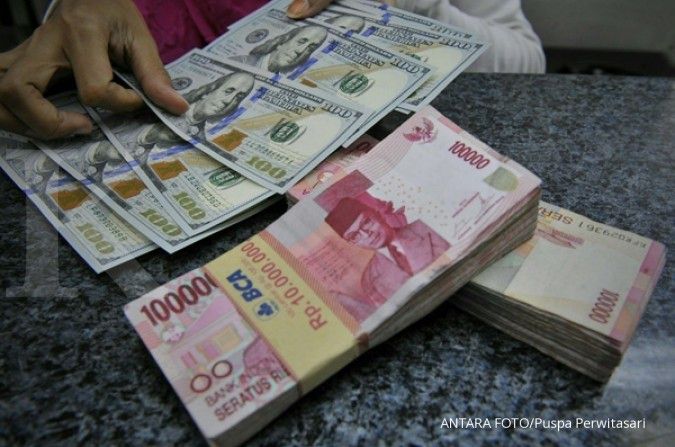JAKARTA. Worries over the possible increase in US interest rates are haunting Indonesian financial markets as analysts fear that higher rates could cause a massive withdrawal of foreign funds from the country.
Analysts said such a withdrawal could occur if there was global monetary tightening as a result of a rise in the US interest rates, given the high foreign ownership of rupiah assets.
In Indonesia, foreign investors hold 37.4 percent of total government bonds traded in the secondary market, compared to 32 percent in Malaysia and 17 percent in Thailand.
Besides the external factors, domestic economic problems such as the country’s high current-account deficit could also trigger the withdrawal of so-called “hot” money from the country.
Capital Economics Ltd., a London-based research firm, has warned that Indonesia’s sizable current-account deficit could lead to the rupiah becoming “emerging Asia’s most vulnerable currency” to any regional outflows triggered by an interest rate in the US.
Global funds pulled out a combined US$1 billion from stocks in Indonesia, South Korea, Taiwan, India and the Philippines this week, amid reports that the US Federal Reserve would raise its interest rates earlier than had been predicted, Bloomberg data shows.
In Indonesia, this week investors pulled out $146 million from the stock market and $5 million from the bond market, according to Asia-Pacific funds flow data from the ANZ Bank.
The series of outflows has prompted a 1.3 percent decline of the rupiah, past the psychological threshold of Rp 12,000 per dollar for the first time since June. On the other hand, the Jakarta Composite Index, the main price indicator on the Indonesian Stock Exchange (IDX), rose 0.7 percent on Friday to 5,246.25, the highest since September. The index has gained 2 percent so far on the week.
“The world is now seeing a repositioning of assets invested by fund managers in emerging markets,” Bank Indonesia (BI) Senior Deputy Governor Mirza Adityaswara said on Friday.
Mirza noted that the outflows were triggered by the Fed’s latest move.
“Countries that still have work outstanding on their economy, such as Indonesia, are facing pressure,” Mirza told reporters at his Jakarta office.
The Fed announced its rates might be lifted by 200 basis points by the end of 2016, from the current historically low level of 0.25 percent, according to economists from BNP Paribas.
Economists from Bank of America Merrill Lynch predicted that the first US interest rate hike could be delivered in June, earlier than their initial estimate of September.
Meanwhile, Indonesia’s current-account deficit, the broadest measurement of international trade, stood at 4.3 percent of gross domestic product (GDP), compared with a deficit of 1.7 percent in India, a 3.4 percent surplus in Malaysia and 6.5 percent surplus in Vietnam.
Nevertheless, several analysts have argued that the panic might have been overpriced and the markets actually underestimated the resilience of emerging economies, Indonesia being a case in point.
The country this year has seen declining inflation, a tighter monetary policy, higher bond yields and an undervalued rupiah — all of which should attract foreign investors, according to Chua Hak Bin, an economist with Bank of America Merrill Lynch.
Jan Dehn, the head of research with UK-based fund manager Ashmore Investment Management, argued that the “Fragile Five” basket of economies most vulnerable to outflows, which includes Indonesia, had actually turned into the “Frugal Five” due to their improvements in fundamentals.
“Emerging markets’ fundamentals were far more robust than last year’s price action — and the hysterical media coverage that accompanied it — would have suggested,” Dehn said. (Satria Sambijantoro)
/2014/06/23/308381016p.jpg)











